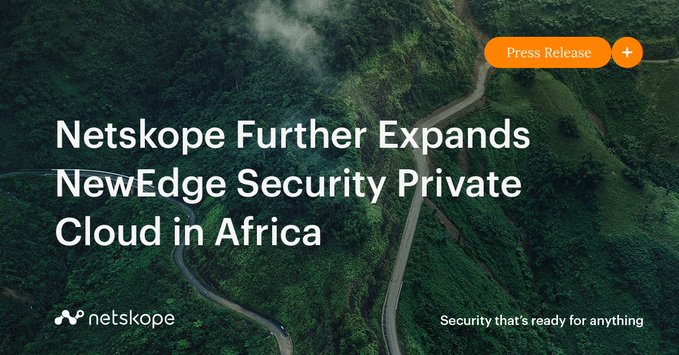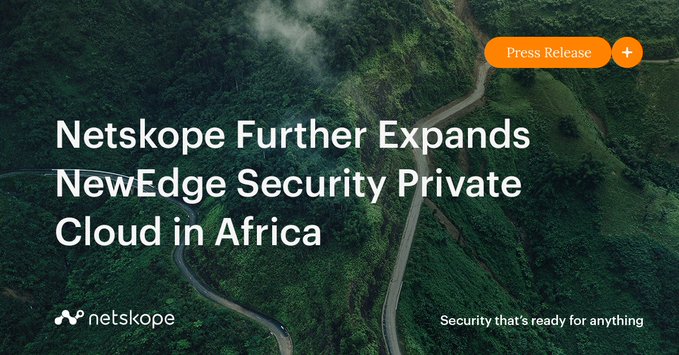Netskope Further Expands Newedge Security Private Cloud In Africa

Netskope Further Expands Newedge Security Private Cloud In Africa. Netskope, the leader in Security Service Edge (SSE) and Zero Trust, today announced its continued global expansion of the Netskope NewEdge network with an additional data centre now launched and taking traffic in South Africa. The new Cape Town deployment complements the existing Johannesburg infrastructure to address growing customer demand, and provide more in-region capacity and redundancy. NewEdge is now powered by data centres in 57 regions with every one providing full compute for security traffic processing, the full breadth of SSE services, and accessible to every Netskope customer without surcharges.

As the infrastructure underpinning the Netskope Security Cloud, NewEdge delivers real-time inline and out-of-band API-driven services spanning Cloud Firewall (FWaaS), Secure Web Gateway (SWG), Cloud Access Security Broker (CASB), Zero Trust Network Access (ZTNA), Cloud and SaaS Security Posture Management (CSPM/SSPM), and more. In addition to accelerating the adoption of a Zero Trust approach, the performance-focused NewEdge architecture ensures there are no performance trade-offs when security is implemented. This approach reduces the risk of users working around security controls, productivity being negatively impacted, or business processes being slowed down or impeded.
Placing data-centric security as close to the user as possible is a key requirement of a SASE-ready architecture and the delivery of world-class Security Service Edge (SSE) capabilities. NewEdge’s expanding global coverage also addresses unique enterprise business requirements and compliance objectives, such as having a data centre in-region for content localisation, or to ensure customer’s traffic stays within intent-based zones. In addition, every NewEdge data centre is extensively peered with the most commonly used web/CDN, cloud, and SaaS providers to deliver fast, optimised access to the content, apps, and data enterprises most care about. For example, every NewEdge data centre is directly connected with Microsoft and Google, plus other peering relationships in key regions with Amazon, Salesforce, ServiceNow, Box, and Dropbox, among many others.
Funzani Madi, Executive: Information Security (Chief Information Security Officer) for Netskope customer Telkom South Africa commented on the news; “It is important for us that data processing occurs within our home jurisdiction, providing tangible improvements to user experience. The new Cape Town NewEdge facility further demonstrates Netskope’s commitment to the African continent.”
Danie Burger, Information Security Specialist at impact.com, a leading partnership management platform and netskope customer commented; “As a Cape Town-based organisation, having local cloud infrastructure for our security makes a material difference to our users’ experience. With offices and clients around the world, it’s imperative that we don’t create unduly lengthy data flows for security. With infrastructure located in Cape Town, and peered connections to all our main cloud services, we can introduce in-line security controls, speeding up access to cloud services.”
Grant Reynolds, regional manager for South Africa at Netskope commented; “Every year the threat landscape becomes larger and more complex, and regulatory requirements for data protection grow, and so it is no surprise that we are seeing strong growth across Africa. Organisations are eager to adopt a Security Services Edge (or SSE) approach to security so that they can embrace working practices and cloud technologies that enhance productivity while ensuring their security policies follow data wherever it goes.
Reynolds continued to say, “But in practice you cannot place your security at the ‘edge’ without powerful in-region infrastructure as part of a distributed and dedicated service edge, and that is why we are investing in NewEdge around the world. NewEdge is capable of inspecting massive amounts of data locally, with no need for complex, latency-prone backhauling or reliance on unpredictable public transport.”



